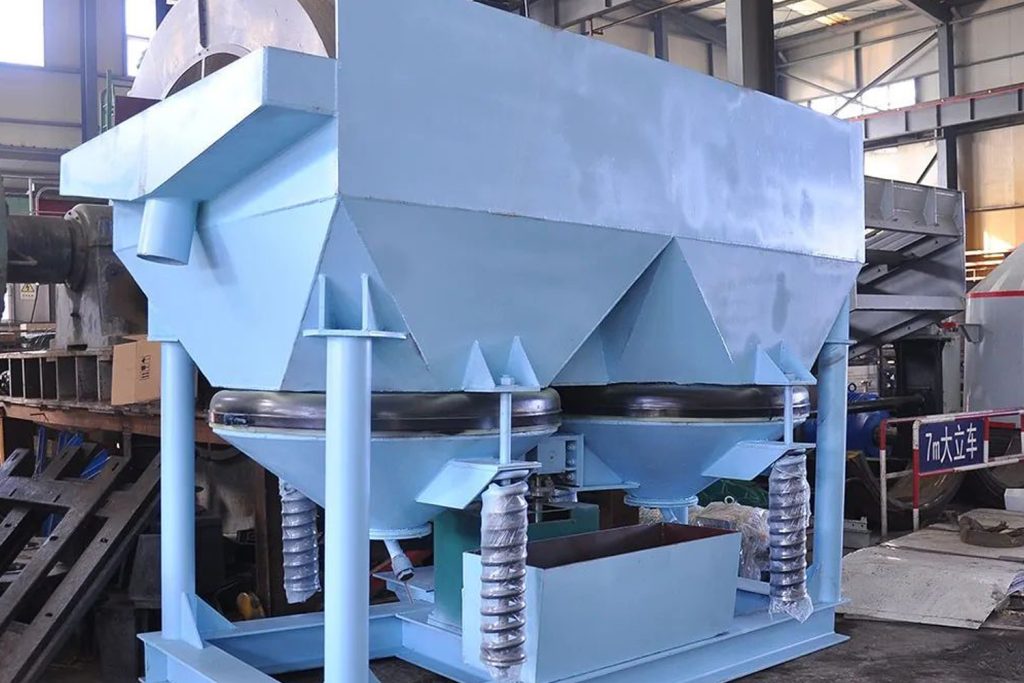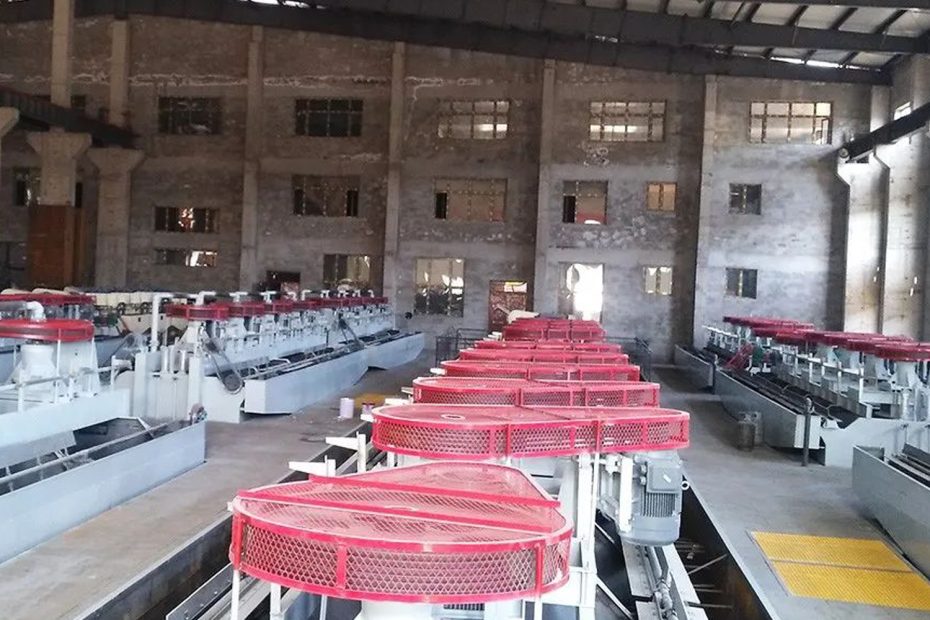Limonite is an important iron ore that exists widely in many countries and regions. To maximize the use of this valuable resource, effective mineral processing are required to improve recovery and grade.
Description of limonite mineral processing process
This article will introduce several common limonite mineral processing methods, including gravity separation, magnetic separation, flotation and combined process.
Limonite gravity separation process
The gravity separation process uses gravity for separation, which is suitable for coarse-grained embedded ores. The advantages of this process are simple equipment, low cost, and low power consumption, and are suitable for resource-poor areas, but the disadvantages are low recovery rate and high tailings grade, which is not conducive to comprehensive recovery of resources. The main steps of this process include three links of washing, screening and gravity separation. Washing can remove the soil and impurities in the ore, and screening can sort the ore according to different particle sizes. Next, the separation of limonite and pseudohematite in the ore can be achieved by using gravity separation equipment such as heavy media and jigs.
Due to the low recovery rate and high grade of tailings, which is not conducive to the comprehensive recovery of resources, the gravity separation process is only a very effective mineral processing method in some specific cases.
Limonite Magnetic Separation Process
The magnetic separation process is a kind of mineral processing method that uses magnetism for separation, and is suitable for fine-grained ore. The main steps of the process include crushing, screening and grinding, grading, sorting and other links. Crusher and ball mill are needed to crush and grind the ore, and then use strong magnetic separator and weak magnetic separator for separation, which can realize the separation of limonite and hematite and other components.
Compared with other mineral processing methods, the magnetic separation process can greatly improve the grade of the product, but the recovery rate of the product is not much improved. Although this process has some disadvantages, it is still a very effective mineral processing method in some specific cases, especially for fine-grained ore, which requires fine grinding and classification to improve the grade.

Limonite flotation process
The flotation process is a mineral processing method that uses buoyancy for separation, and is suitable for fine-grained embedded ores. The main steps of the process include desliming, fine grinding and flotation. First, it is necessary to use a washing machine for desliming treatment to remove the mud and impurities in the ore. Then, the ore needs to be finely ground using a ball mill to subdivide the ore into smaller particles. Finally, flotation is carried out using mixing tanks and flotation machines to separate limonite and other components in the ore.
The flotation process is usually used to recover associated sulfides or carbonates, etc., and has a good effect on the recovery of fine-grained limonite. However, this process is only suitable for limonite with a single property, and the cost of flotation is relatively high, so it is necessary to choose the most suitable mineral processing method according to the specific situation.
Limonite joint mineral processing
Combined process flow combines gravity separation, magnetic separation, flotation and other methods to achieve complementary advantages and improve recovery rate and grade. Common combined processes include strong magnetic separation-direct flotation, strong magnetic separation-reverse flotation, roasting-weak magnetic separation, gravity separation-weak magnetic separation, etc.
In the strong magnetic separation-positive flotation process, first use a strong magnetic separator to separate the magnetic substances, and then use a positive flotation machine to float out the non-magnetic substances.
In the strong magnetic separation-reverse flotation process, the non-magnetic substances are separated by a strong magnetic separator first, and then the magnetic substances are floated by a reverse flotation machine.

The roasting-weak magnetic separation process is to burn the limonite into minerals with weak magnetic properties, and then separate them with a weak magnetic separator.
In the gravity separation-weak magnetic separation process, the ore is roughly separated by gravity separation equipment, and then the separated ore is further separated by weak magnetic separator.
The combined process can choose the most suitable combination according to different limonite characteristics, so as to improve the comprehensive utilization efficiency of resources and improve the recovery rate and grade at the same time. Although the process of the combined process is relatively complicated and an appropriate combination method needs to be selected, it combines different mineral processing methods to achieve complementary advantages and has a significant effect on improving the recovery rate and grade of limonite.
In conclusion
The mineral processing of limonite is an important work, and it is necessary to select the appropriate mineral processing method and process to improve the recovery rate and grade and realize the maximum utilization of resources. The choice of mineral processing should be comprehensively considered according to the nature, composition and market demand of the ore in order to achieve the ideal mineral processing effect.
